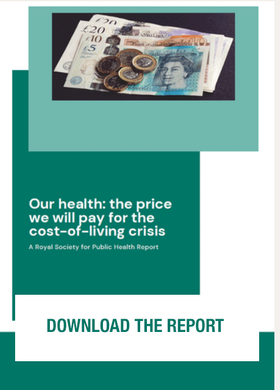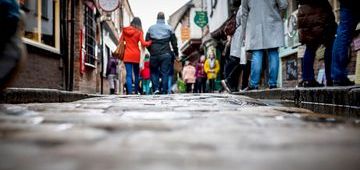
The report’s findings, which were based on a recent public poll*, indicate that:
- 47% of all households are concerned they are running out of ways to minimise costs further without cutting back on essentials;
- Among those who think their financial situation is going to get worse over the next year, 75% are already concerned they are running out of ways to minimise costs without cutting back on essentials;
- 41% are concerned that the cost-of-living is impacting their physical health;
- Only half (48%) of the country feel confident they can rely on their social and community networks for mental and emotional support this winter.
As the country experiences growing financial pressures and will likely continue to do so for some time, many households find themselves in a precarious position where they must choose which essentials for healthy living they can afford. With a significant proportion of the public, particularly those with children, indicating they are already making tough choices between heating, eating and health, we are at very real risk of entering a dark and prolonged period of worsening long-term ill health which will have implications for years to come, particularly on the prosperity of the country.
RSPH’s polling also shows that the health impact of the cost-of-living crisis is unlikely to be spread across society equally. People who are on a low income, live with a disability or long-term ill-health, are female, parents, or middle aged are consistently more concerned about the cost-of-living crisis, have fewer social and financial resources to draw on for support and are already making cutbacks which will impact their health and wellbeing. In turn, the health inequality gap between the most and least socially disadvantaged groups in society will grow even wider.
However, there is still much we can do in society to lessen the public health impacts and narrow health inequalities and to do this, collective action is needed.
William Roberts, FRSPH, Chief Executive of RSPH says:
“With the UK now in recession and families are shouldering the burden from inflation and energy rises. We cannot afford to be on the back foot when responding to the consequences of increasing costs on health and inequalities.
“The cost-of-living crisis is a public health crisis and prevention of ill-health is key to supporting the financial growth and wellbeing of the nation. To ensure we are all supported to live healthier lives, more must be done to support households that have no way to respond to situations outside of their control. It is vital for that the response to the current crisis considers not just individual responsibility, but collective responsibility from all tiers of society, including government, local authorities, and employers.”



